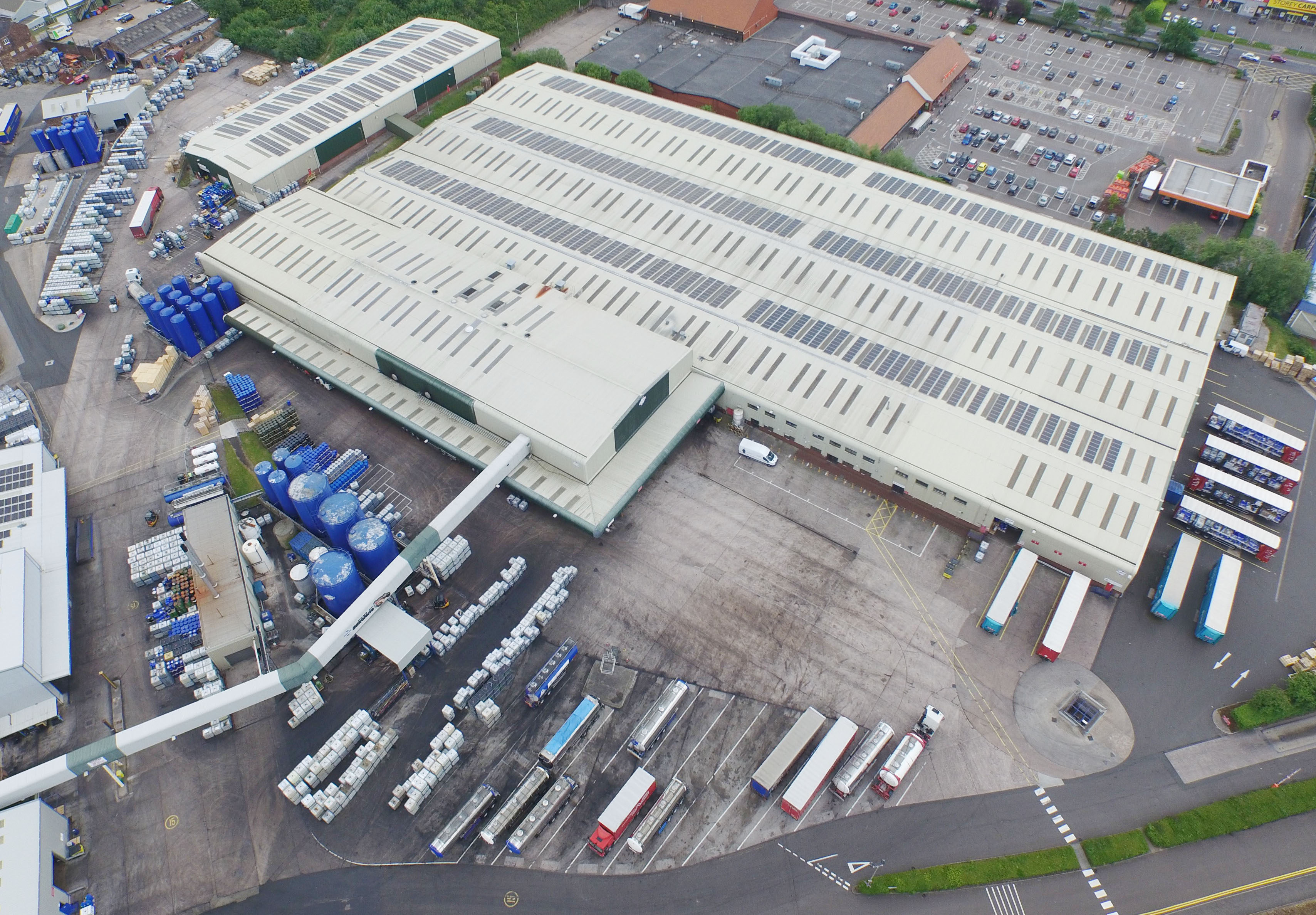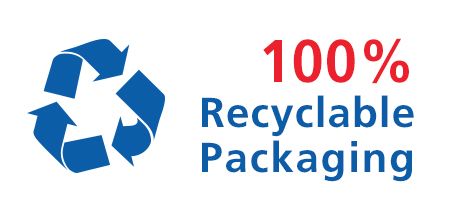How FUCHS uses BSI certification to ISO 50001, over ESOS audits, to maximize energy efficiency
How FUCHS uses BSI certification to ISO 50001, over ESOS audits, to maximize energy efficiency
“The key advantages of ISO 50001 are that it drives continual performance improvement and focuses senior and top management... It shows customers and other stakeholders the rigour of FUCHS’s approach… The energy review and savings are transparent, and savings are almost instant.” Simeon Preston, Compliance Manager, FUCHS Lubricants (UK) plc.
Customer benefits
- Reduced energy consumption
- Significant cost savings
- Compliance with statutory energy efficiency requirements
- Comparable cost to an ‘ESOS’ audit, but with greater benefits
- Increased emphasis on continual improvement and management focus
- Meeting customer and stakeholder expectations
- Stronger ‘green’ credentials in bids and tenders
- Enhanced reputation for sustainability
At a glance
The FUCHS Group is the world’s leading independent supplier of lubricants, having developed, produced and sold lubricants for more than 85 years. From German roots, the Group now encompasses about 60 companies with almost 5,000 employees worldwide. FUCHS’s products range from automotive and metalworking lubricants to corrosion preventives and industrial cleaners, oils and greases, serving a multitude of applications across virtually all industry sectors.
Customer background
The Group’s UK arm, FUCHS LUBRICANTS (UK) plc, based at Stoke-on-Trent, holds BSI certification to several standards, including ISO 50001 for Energy Management.
Why certification?
FUCHS operates to the highest management system standards. In the UK, this rigorous approach is underpinned by BSI certification to: the quality standards ISO 9001, IATF 16949 and AS 9100; the health and safety standard BS OHSAS 18001; and the Environmental Management standard ISO 14001.
In addition, in August 2015, the company achieved certification by BSI to ISO 50001, a standard that represents the latest international best practice in energy management.
As Simeon Preston, Compliance Manager for FUCHS Lubricants (UK) plc, explains, “We want to ensure we manufacture good quality product, while also looking after the health and safety of our people and minimizing our environmental impact.”
Preston continues, “As we operate in many industry sectors we want to support each sector so, for example, for aerospace and defence, we went for the AS 9100 certification. For the automotive sector we have IATF 16949. In addition, ISO14001 became an expectation of the sector and, for some customers, mandatory.”
There was an additional business driver for ISO 50001 – FUCHS needed to demonstrate that it was meeting statutory requirements for energy efficiency.
Focusing on energy
FUCHS could have settled for the UK Government’s Energy Savings Opportunity Scheme (ESOS), a mandatory energy assessment scheme for organizations in the UK that meet the qualification criteria. ESOS assessments every four years audit the energy used by buildings, industrial processes and transport to identify cost-effective energy saving measures.
But instead of using an ESOS audit to meet statutory requirements, Fuchs opted for BSI certification ISO 50001, a rigorous approach to energy management that offered additional benefits. “A quick analysis showed us that the cost over a five-year period was comparable,” says Preston. “But the benefit of an ESOS report was limited compared with the advantages of ISO 50001.”
He continues, “The key advantages of ISO 50001 are that it drives continual performance improvement and focuses senior and top management. While an ESOS audit ought to result in action and improvement, we were concerned that other work demands would result in it sitting on the shelf collecting dust. I’m sure this is the case for many SMEs.”
A further factor was also critical. “At the early stages of a tender or request for quotation we are evaluated, and ISO 50001 has been mentioned specifically in some documents,” says Preston. “An increasingly important contributing factor to being awarded business is sustainability – and ISO 50001 demonstrates an important part of our approach to sustainability.”
Implementation
FUCHS found the implementation of ISO 50001 straightforward. “The fact we already had ISO 14001 helped us integrate ISO 50001,” says Preston. “The biggest challenge was mapping energy use and the introduction of sub-metering. By having the energy mapped we could focus on improvement projects and we’ve been able to quantify actual savings each project has given us. The management system drives this in logical sequence, and gives us a way of documenting processes.”
In terms of ‘winning hearts and minds’, Preston says most staff at FUCHS were on board with the ISO 50001 implementation project at an early stage, “but some awareness training helped focus people’s attention”. In general, he says the company doesn’t partner with any single training provider, “but we have used BSI over the years and the standard of training is very high.”
Certification benefits
BSI certification to ISO 50001 offers major benefits. In particular, says Preston, “It shows customers and other stakeholders the rigour of FUCHS’s approach. Many customer site visits take place throughout the year, and we can showcase our improvements such as the solar panels and LED lighting.”
He adds, “Obviously, the main purchasing decision factors for customers are still price and products, but certification to this standard helps in the preliminary stages, and it does appear to be influential for larger organisations.”
He is in no doubt that ISO 50001 has cuts energy costs. “As a company we are committed, and this is linked to return on investment,” he says. For example, solar panel installation at the company’s Stoke premises has an eight-year payback period, while in some areas of the site LED lighting has a payback period of less than one year. “ISO 50001 gives the structure and justification for spending money, and then it calculates of the actual savings made, so lessons learned can be applied both to the UK but also shared globally within the FUCHS group.”
Tangible savings have been measured. The company’s energy review for 2016 shows a 1% reduction in kWh consumption in comparison with 2015, saving £124,000 in energy costs. “There are variables such as the price of energy types or fuels, but we see the saving continuing year on year and are hopeful our 2017 performance will show a 2% decrease in consumption,” says Preston. “This would result in another significant annual saving. Financially, the savings are off the bottom line.”
Why BSI?
FUCHS has consistently chosen BSI as its certification partner, “because it has the ability to support all six schemes,” says Preston. “Prestige was also an important factor. BSI has a good reputation and we have confidence in it, as do our stakeholders.”
He also cites the “quality and expertise” of BSI’s assessors and client managers, and “the overall value we gain from the audits”. “We have an excellent relationship with the client managers who we have direct contact with regularly. They always make us aware of the products and options, but without trying to sell a solution.”
He adds that when it comes to the costs of BSI certification to ISO 50001, “in relation to the savings they are minimal.”
Preston concludes, “The energy review and savings are transparent, and savings are almost instant. Our efforts are focused on finding further areas of improvement, and more projects are in the pipeline.”





